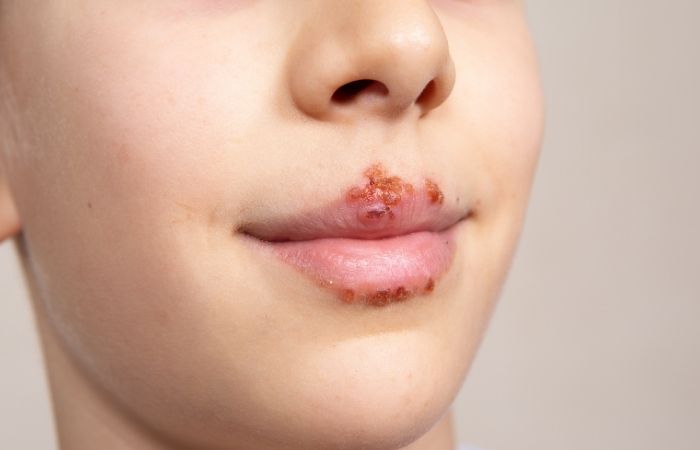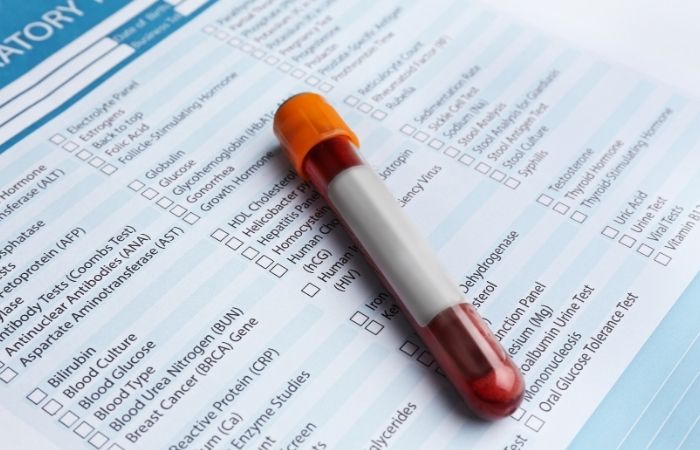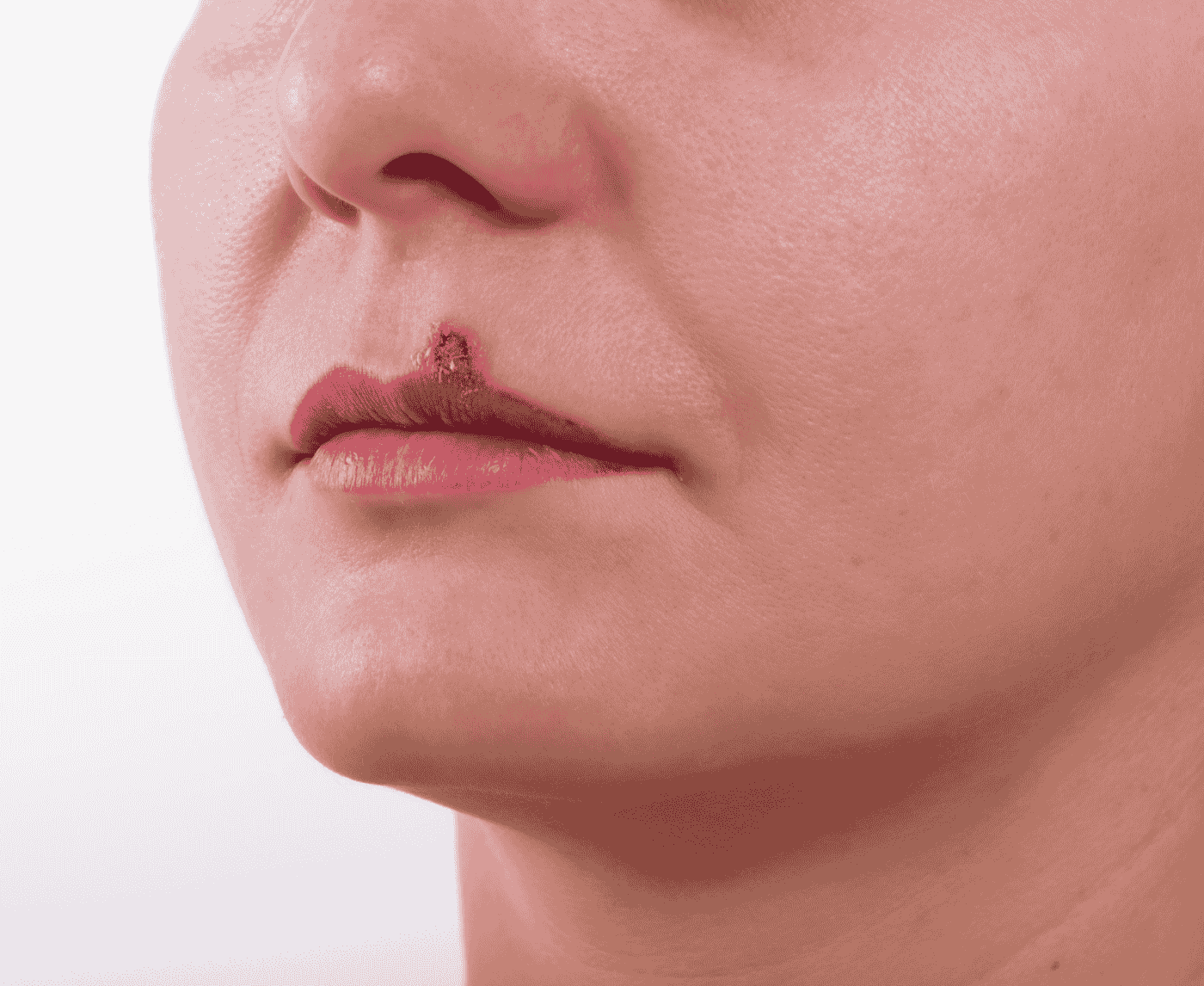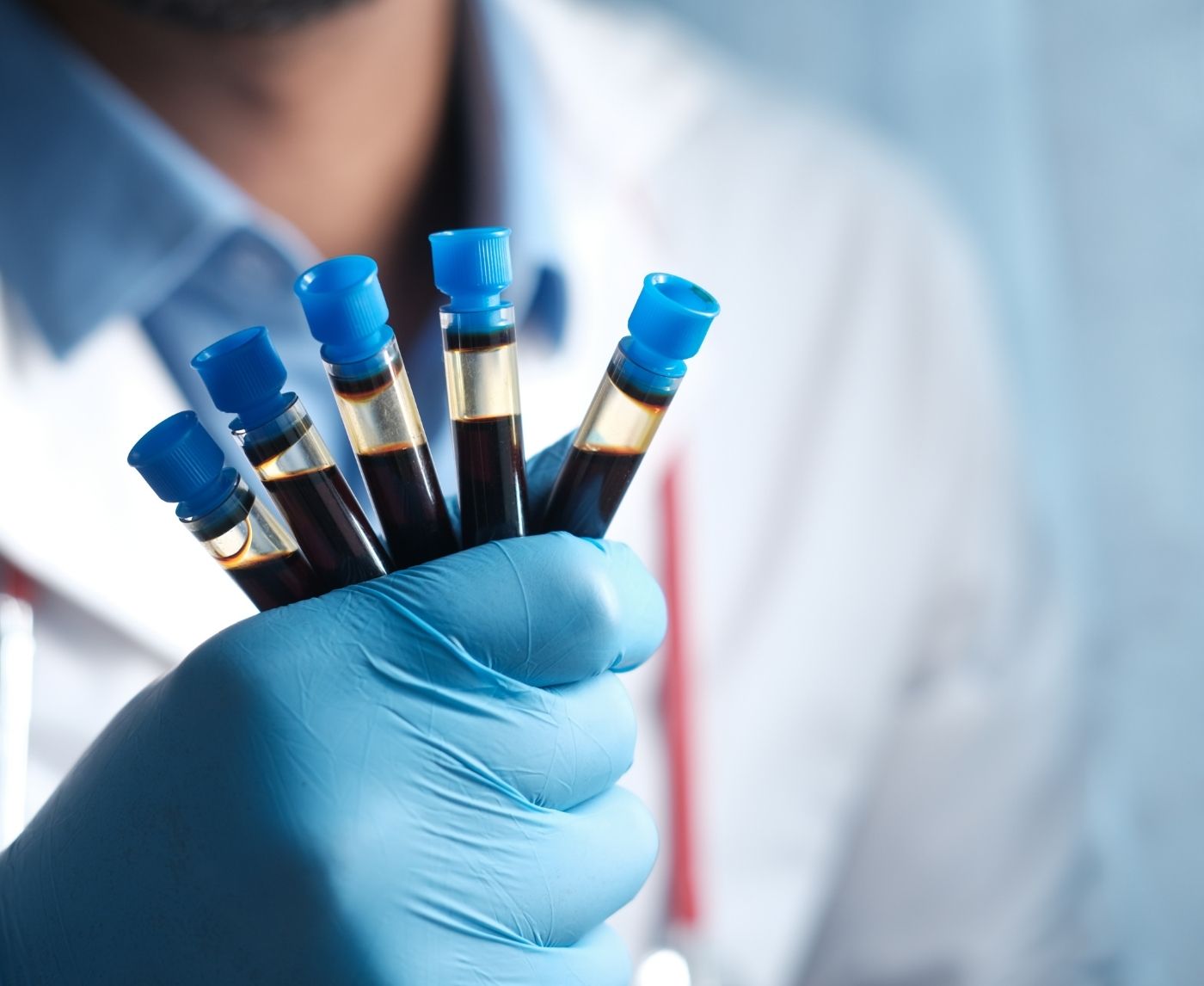How Soon After Sex Can You Test for HSV-1 or HSV-2?
Quick Answer: Most people with HSV-1 or HSV-2 don’t know they’re infected because herpes can be completely asymptomatic or so mild it’s mistaken for something else. Testing isn’t routine, and the virus is far more common than people realize.
The Herpes Numbers No One Talks About
Let’s start with the data. According to the CDC, over 48% of people aged 14 to 49 in the U.S. carry HSV-1, and about 12% carry HSV-2. Globally, the World Health Organization estimates that 3.7 billion people under 50 have HSV-1 and 491 million people aged 15–49 have HSV-2.
What’s more important than those numbers is this: most people don’t know they’re infected. One study found that nearly 90% of people who tested positive for HSV-2 had never been diagnosed. That’s because herpes can live silently in your body, passed along through skin contact, not just sex, and often shows up without the classic signs you see in textbooks.
For many, their only "symptom" is testing positive, often years after the fact.

People are also reading: Can You Get an STD from Hands Alone?
Why You Can Have Herpes and Never Know
Herpes is a shape-shifter. It doesn’t always present with visible sores, blisters, or pain. In fact, most people with herpes don’t experience symptoms at all, or they mistake the mild ones for something else:
Table 1. Why herpes symptoms often go unnoticed or misdiagnosed.
Herpes also hides between outbreaks. After initial exposure, the virus lies dormant in your nervous system. It may flare occasionally, or not at all. When it does reactivate, many people don’t experience noticeable sores. Yet they can still pass the virus through asymptomatic shedding, when viral particles are present on the skin without any visible signs.
Herpes Without Symptoms: Is That Even Possible?
Yes, and it’s incredibly common. Asymptomatic herpes is real and backed by decades of peer-reviewed research. Studies published in Sexually Transmitted Diseases Journal and The Journal of Infectious Diseases show that between 70–90% of HSV-2 carriers are unaware of their status. Many report never seeing a blister, scab, or sore.
Even when symptoms do appear, they’re often so mild or atypical that they get chalked up to friction, allergies, or stress. Genital herpes doesn’t always mean dramatic, painful ulcers. It can be one tiny cut. Or a sensation. Or nothing.
Take Layla, 33, who tested positive during a routine STD panel she requested before a new relationship:
"I cried in the parking lot. I felt ashamed, like I’d failed some invisible test. But the nurse said it’s one of the most common STDs, and most people have no clue. I’d never had an outbreak. Nothing. Just... positive."
Layla’s story isn’t rare, it’s precisely why herpes stigma thrives. We assume it looks or feels a certain way. When it doesn’t, people think they’re safe. But herpes doesn’t wait for symptoms to spread.
“Everyone Has Herpes.”
So, is it accurate to say everyone has herpes? Clinically, no, but statistically, it's not far off. If you count both HSV-1 and HSV-2, a majority of the world’s population carries at least one form of the virus. HSV-1, historically known for oral cold sores, now causes up to 50% of new genital herpes cases in young adults, according to recent research.
What does that mean? It means that what used to be a childhood virus from shared utensils is now showing up in sexual health panels. It means someone can give you genital herpes from oral sex and never know they’re a carrier. And it means that the line between “I have herpes” and “I just get cold sores” is thinner than people think.
Here’s a breakdown:
Table 2. Global prevalence and transmission for HSV-1 and HSV-2.
So no, not literally everyone has herpes, but the vast majority of us carry a form of it. What’s rare isn’t the virus. It’s knowing you have it.
Why Herpes Testing Isn’t Routine (And That Needs to Change)
Here’s something that surprises most people: routine STD panels don’t test for herpes unless you ask. Even if you’re getting tested regularly, most clinics, and even telehealth platforms, skip herpes unless there are visible symptoms or specific risk factors.
The CDC recommends against widespread herpes testing in people without symptoms. Why? Because the available blood tests can’t always distinguish between HSV-1 and HSV-2 clearly, and false positives are possible. But that leaves a gray area for people who want to know for their own peace of mind.
It also means most carriers will never find out unless they ask, and many don’t even know they should.
How Herpes Spreads Without You Knowing
Herpes doesn’t need full-blown symptoms to spread. In fact, asymptomatic shedding is one of its sneakiest tricks. That means you can pass the virus to someone else even when you feel completely fine and see nothing unusual on your skin.
This silent transmission is especially common during oral sex. Many people with HSV-1 on their lips have no idea they can give their partner genital herpes, even during a quick hookup, or with no active cold sore. HSV-1 now causes more new genital infections than HSV-2 in younger adults under 30, particularly among women and queer communities.
Here’s a scenario:
Danny, 24, never had a cold sore. One night, he hooks up with someone and gives oral sex. Two weeks later, his partner develops blisters and gets diagnosed with HSV-1 genital herpes. The fallout? Danny gets accused of lying. In reality, he never knew he had the virus, and still doesn’t test positive on standard panels.
“I felt guilty for something I didn’t even know I could carry,” Danny said. “There was no sore, no warning. I wish I’d known it was even possible.”
That story is becoming more common, not because people are irresponsible, but because herpes is quiet and testing is limited. And stigma? It keeps people in the dark longer than any virus ever could.
Stigma Is Deadlier Than the Virus
To be clear, herpes won't kill you. It doesn't ruin your sex life. It doesn't mean you're careless or dirty. But the shame that comes with it can be very bad, and that's where the real harm happens.
The stigma around herpes keeps people quiet, makes them wait to get tested, and turns infections that are easy to handle into mental health problems. Even though the virus is one of the most common STIs in the world, many people say they feel "damaged" or "unlovable" after a positive test. That stigma comes from old ideas about purity, promiscuity, and punishment, not facts about health.
A study from 2020 found that people who test positive for HSV often have more emotional problems than physical ones. Many people have trouble opening up because they are afraid of being rejected or losing their sense of self-worth.
That's why education is important. Testing is important. Even if you've never had a blister, knowing your status can be a powerful act of care, not a sign of shame.
Can You Get Tested for Herpes at Home?
Yes, but with some caveats. Most at-home STD panels do not include herpes by default. However, you can request specific testing for HSV-1 and HSV-2 through select services that offer finger-prick blood testing or mail-in lab kits.
At-home herpes tests check for antibodies, proteins your immune system makes in response to infection. They can’t tell you when you got infected or whether your partner was the source. But they can offer clarity, especially if you’re entering a new relationship or have unexplained symptoms.
Want to check quietly, on your terms? This discreet at-home herpes rapid test can help you get answers in minutes, without a trip to the clinic.
If your head keeps spinning, peace of mind is one test away.

People are also reading: How Accurate Are Chlamydia At Home Tests?
What to Do If You Test Positive
If you test positive for herpes, whether through an at-home kit or a clinic, the first thing to remember is this: you’re not alone. Millions live with HSV-1 or HSV-2 and go on to have relationships, pregnancies, and fulfilling sex lives. It’s not a death sentence. It’s a diagnosis, and a manageable one.
Here’s what happens next:
- Confirm your result: If you tested with a rapid kit, follow up with a lab-based confirmatory test or see a provider.
- Talk to your partners: This part is hard, but it’s better to be open than risk blindsiding someone later. Scripts and anonymous notification services can help.
- Explore treatment: Antiviral medications like valacyclovir can reduce symptoms and viral shedding, even if you don’t get outbreaks.
- Give yourself grace: This is common. This is manageable. This is not who you are.
Need help navigating it all? Return to STD Test Kits to explore discreet testing options, partner resources, and next steps.
What Living with Herpes Actually Looks Like
For most people, having herpes doesn’t mean daily pain, endless outbreaks, or the end of a sex life. It means living with a virus that occasionally flares, if at all. The worst part? Not the symptoms. It’s the shame that tags along with the diagnosis.
Sam, 29, remembers the exact moment he was diagnosed. It was a Wednesday. A sore had appeared near his groin, and the clinic swabbed it.
“When they called with the results, I felt like I’d failed a test I didn’t know I was taking,”
But over time, the fear wore off. “I joined a support group. I told one friend. Then two. I realized I was still me. I could still date, still have sex, just with a little more honesty.”
Herpes is lifelong, but it's not life-defining. The average person with HSV-2 experiences 4–5 outbreaks per year initially, decreasing over time. Many people with HSV-1 genital herpes have one outbreak, and never see another. And for asymptomatic carriers, the physical reality is: nothing happens at all.
So what changes? Mindset. Conversations. Boundaries. That’s where the real work begins, and where most people find unexpected strength.
Herpes and Dating: Hard Conversations, Stronger Relationships
Let’s talk about dating, because that’s where herpes fear really digs in. One survey by the American Sexual Health Association found that the biggest concern for people with herpes wasn’t the virus itself, it was telling a partner.
Disclosure feels terrifying. Will they reject me? Will they assume I’m reckless? Will they Google me and ghost? These are real fears. But here’s the thing: plenty of people don’t care. Some already have the virus themselves. Others value honesty over perfection. And many understand that herpes is a skin condition with a bad PR team, not a moral failing.
When you disclose with confidence and facts, like the truth about how common herpes is, how outbreaks are managed, and how transmission can be minimized, you give the other person a chance to be a grown-up about it.
Mina, 27, puts it like this:
“I’ve told five partners since my diagnosis. Four didn’t bat an eye. One said thank you. I used to think herpes made me unlovable. Turns out, it made me honest.”
If you need help with how to say it, there are anonymous partner notification tools and tested scripts out there. Some even link to sites like STD Test Kits where partners can test themselves from home.
Pregnancy and Herpes: What You Actually Need to Know
Yes, you can have a healthy pregnancy and baby if you have herpes. In fact, most people with HSV-1 or HSV-2 never have complications during childbirth. The key? Knowing your status and working with your provider early on.
The main concern during pregnancy is neonatal herpes, which can be serious if passed during delivery. But this is rare, especially when:
- You already had herpes before pregnancy (your body provides protective antibodies to the baby).
- Your provider knows and monitors for outbreaks near your due date.
- Suppressive antivirals are used in the final weeks of pregnancy to reduce shedding.
According to the American College of Obstetricians and Gynecologists, cesarean delivery is only recommended if there’s an active genital outbreak at the time of labor. Otherwise, a vaginal delivery is safe for most.
Bottom line? Herpes doesn’t exclude you from parenthood. It just means being informed, and reminding yourself that millions of parents have been right where you are.
Mental Health After a Herpes Diagnosis
The herpes virus is biological. The trauma? That’s cultural. It’s not the blisters that break people, it’s the silence, the jokes, the ghosting, the Google searches that read like horror stories.
Studies show that the emotional fallout from a herpes diagnosis can mimic grief: denial, anger, bargaining, depression, acceptance. It’s not uncommon to feel ashamed, dirty, or hopeless in the days after a diagnosis. But with time, information, and support, most people shift into resilience.
Therapists who specialize in sexual health can be lifesavers. Online support groups, like those on Reddit, PositiveSingles, or Herpes Opportunity, offer solidarity, humor, and real-world advice from people who’ve lived it. The more you talk, the less power the stigma holds.
Ali, 35, said it best:
“Herpes didn’t ruin me. It rewired me. I stopped pretending sex had no risks. I stopped saying yes when I meant maybe. I started asking better questions, having deeper conversations, and choosing people who could handle reality.”
That’s not a virus. That’s growth.
Is There Ever a Reason to Not Get Tested?
This might surprise you, but there are some valid reasons to skip herpes testing, especially if you’ve never had symptoms. The CDC doesn’t recommend routine testing for asymptomatic individuals unless:
- You have a partner with known herpes
- You’re pregnant or planning to conceive
- You’ve had a recent high-risk exposure and want clarity
Why? Because herpes blood tests detect antibodies, not the virus itself. They can’t tell when you got infected, and they may return false positives in some cases. That can cause anxiety without clinical benefit. But if you want to know, for your own body, peace of mind, or relationships, then that is reason enough.
Testing is always your choice. What matters is making it from a place of power, not panic.

People are also reading: How Accurate Are Syphilis Rapid Tests in 2025?
FAQs
1. Can you really have herpes and have no idea?
Totally. Most people with herpes never see a blister or feel a single tingle. It’s like that quiet roommate who moves in and never pays rent, annoying, invisible, and surprisingly common. This is why so many people pass it without realizing.
2. Wait, does that mean I could have it right now?
Yep. If you’ve ever kissed someone, had oral sex, or shared skin-to-skin contact with a partner, it’s possible. Especially if you’ve had a cold sore at any point in your life, congrats, that’s HSV-1, which can be genital too.
3. Is it true that almost everyone has herpes?
Kinda. If you count both HSV-1 and HSV-2, we’re talking billions of people worldwide. Some carry it orally, some genitally, some both. It’s less “rare STI” and more “unspoken reality of adulthood.”
4. How is herpes still spreading if people don't have symptoms?
Because herpes doesn’t need your permission, or your symptoms, to spread. It's called asymptomatic shedding: the virus shows up on the skin even when you feel fine. Think of it like glitter. You don’t see it, but suddenly it’s on everything.
5. So why don’t doctors test for herpes all the time?
Short answer: it’s complicated. Long answer: blood tests can be murky, especially for HSV-1, and false positives are a thing. That’s why the CDC recommends testing only if you have symptoms, a known exposure, or a specific reason to ask. You still have the right to get tested if you want clarity.
6. How do I know if it’s herpes or just an ingrown hair?
Great question, and one of the top Google searches. Herpes usually starts as a tingle, then a blister or cluster of tiny sores. Ingrown hairs are often single bumps, sometimes with a visible hair inside. If it stings, comes back, or freaks you out? Get it swabbed. Don’t guess.
7. Can I date if I have herpes? Or is that it for my love life?
You can 100% date, flirt, hook up, fall in love, whatever you were doing before. Plenty of people date with herpes. What changes is the conversation. When you disclose with honesty and facts, you’d be surprised how many people say, “Thanks for telling me. That’s no big deal.”
8. Will I give this to my future partner?
Not necessarily. With suppressive medication and condoms, the risk drops dramatically. Add in honest timing (avoiding sex during outbreaks), and you can have a long-term relationship without ever transmitting it. Knowledge is safer than secrecy.
9. What if I’m pregnant, should I be worried?
If you already had herpes before pregnancy, your baby is usually protected by your antibodies. Doctors may give antivirals in the third trimester and will monitor for any symptoms. Vaginal birth is still on the table unless there’s an active outbreak during labor.
10. Where can I get tested without awkward conversations or paperwork?
Right here. This at-home herpes test is quick, private, and skips the waiting room altogether. Just you, the test, and some peace of mind.
How We Sourced This Article: We combined current guidance from leading medical organizations with peer-reviewed research and lived-experience reporting to make this guide practical, compassionate, and accurate. In total, around fifteen references informed the writing; below, we’ve highlighted some of the most relevant and reader-friendly sources.
Sources
1. WHO: Herpes Simplex Virus Overview
2. WHO — Herpes Simplex Virus Fact Sheet
4. Genital Herpes: Review of the Epidemic and Potential Use of Type-Specific Serology — PMC
5. Shedding Patterns of Genital Herpes Simplex Virus Infections — JAMA
About the Author
Dr. F. David, MD is a board-certified infectious disease specialist focused on STI prevention, diagnosis, and treatment. He blends clinical precision with a no-nonsense, sex-positive approach and is committed to expanding access for readers in both urban and off-grid settings.
Reviewed by: A. Pennington, NP | Last medically reviewed: October 2025
This article is for informational purposes and does not replace medical advice.







